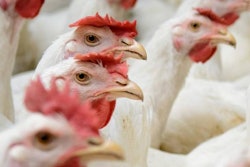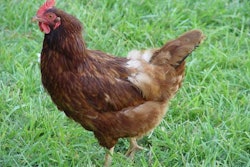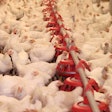
There have now been 22 confirmed cases of virulent Newcastle disease in California in 2018, the USDA Animal and Plant Health Inspection Service (APHIS) announced.
None of the cases reported have involved commercial poultry, but rather have been involved backyard exhibition birds. Twenty-one of the cases occurred in San Bernardino County, while the other case, which was the first one to be confirmed, was in Los Angeles County. All cases involved backyard exhibition chickens, but one case did include mixed species birds.
The first case of virulent Newcastle disease was confirmed on May 17. The seven most recent cases were confirmed on June 19-25.
No cases of virulent Newcastle disease have been confirmed in the United States since 2003, according to APHIS.
Samples from the flocks were tested at the California Animal Health & Food Safety Laboratory System (CAHFS). The APHIS National Veterinary Services Laboratories in Ames, Iowa, confirms all findings. APHIS is working closely with the California Department of Food and Agriculture to respond to these findings and to conduct an epidemiological investigation. Federal and State partners are also conducting additional surveillance and testing in the area.
Recommended precautions
In very rare instances, people working directly with sick birds can become infected, but no human cases of Newcastle disease have ever occurred from eating poultry products, according to APHIS. Symptoms are usually very mild and limited to conjunctivitis. Infection is easily prevented by using standard personal protective equipment.
It is essential that all bird owners follow good biosecurity practices to help protect their birds from infectious diseases, the agency emphasized. These include simple steps like washing hands and scrubbing boots before and after entering a poultry area; cleaning and disinfecting tires and equipment before moving them off the property; and isolating any birds returning from shows for 30 days before placing them with the rest of the flock.
In addition to practicing good biosecurity, all bird owners should report sick birds or unusual bird deaths to state or federal officials, either through their state veterinarian or USDA’s toll-free number at +1.866.536.7593. Additional information on biosecurity for backyard flocks can be found on the Biosecurity for Birds webpage.
















